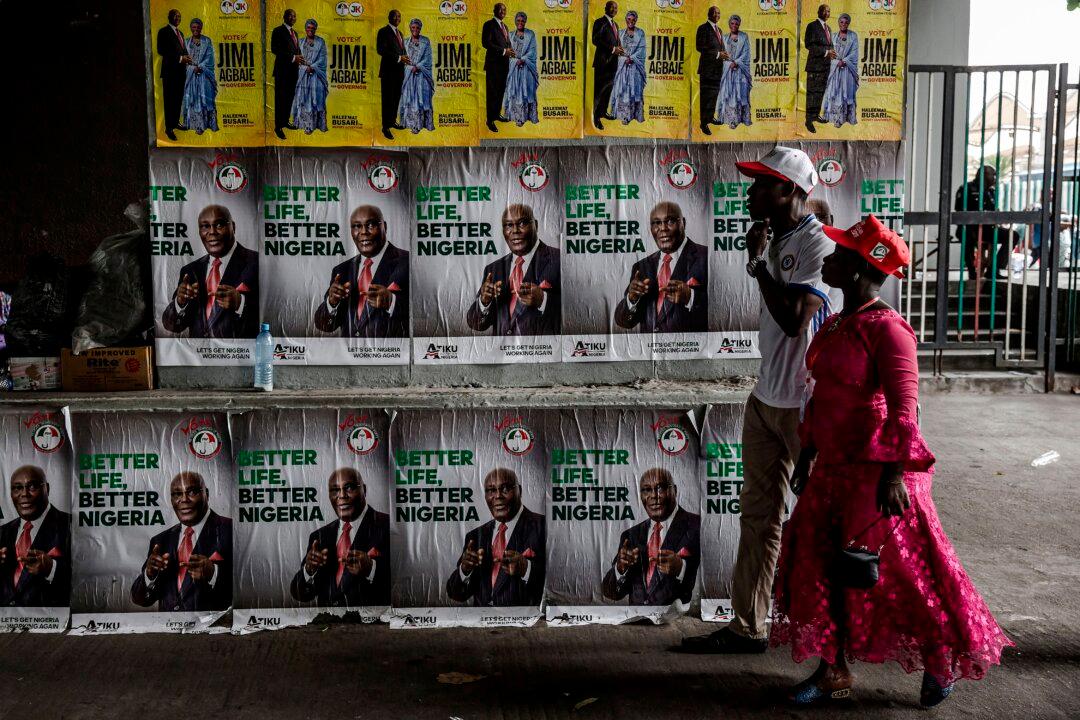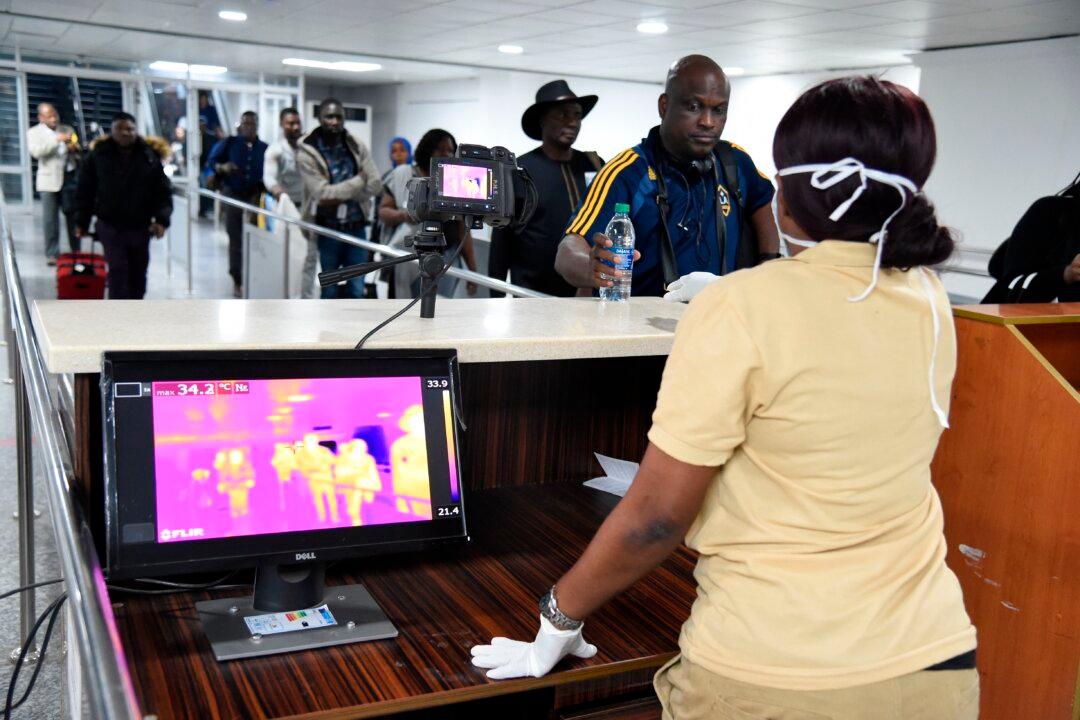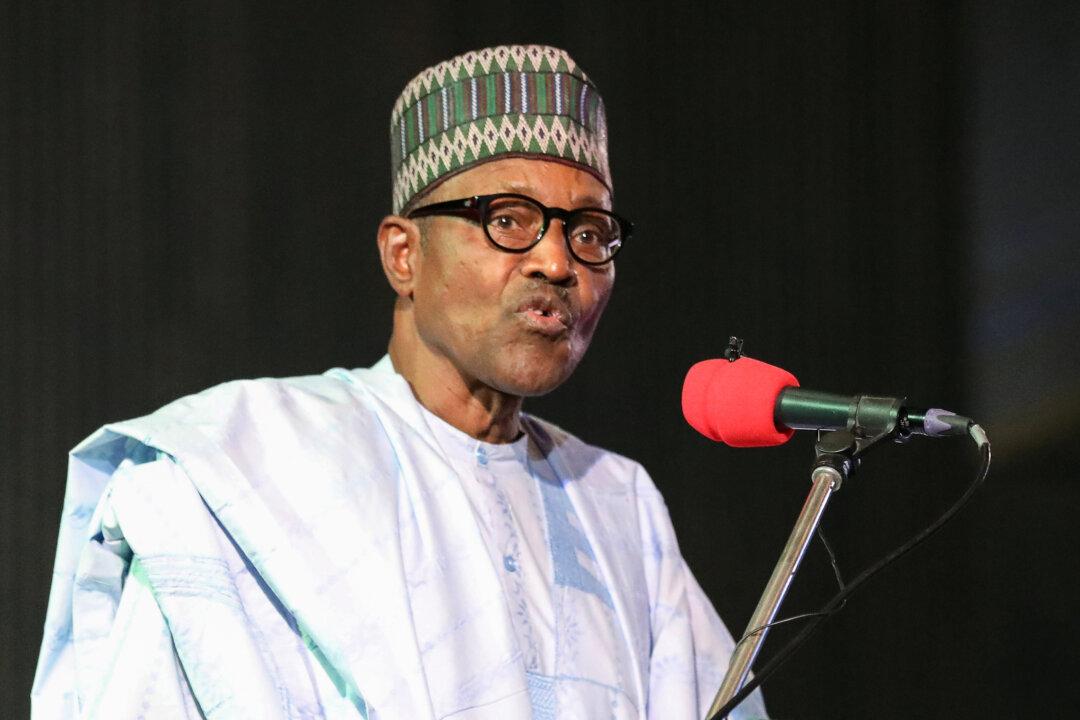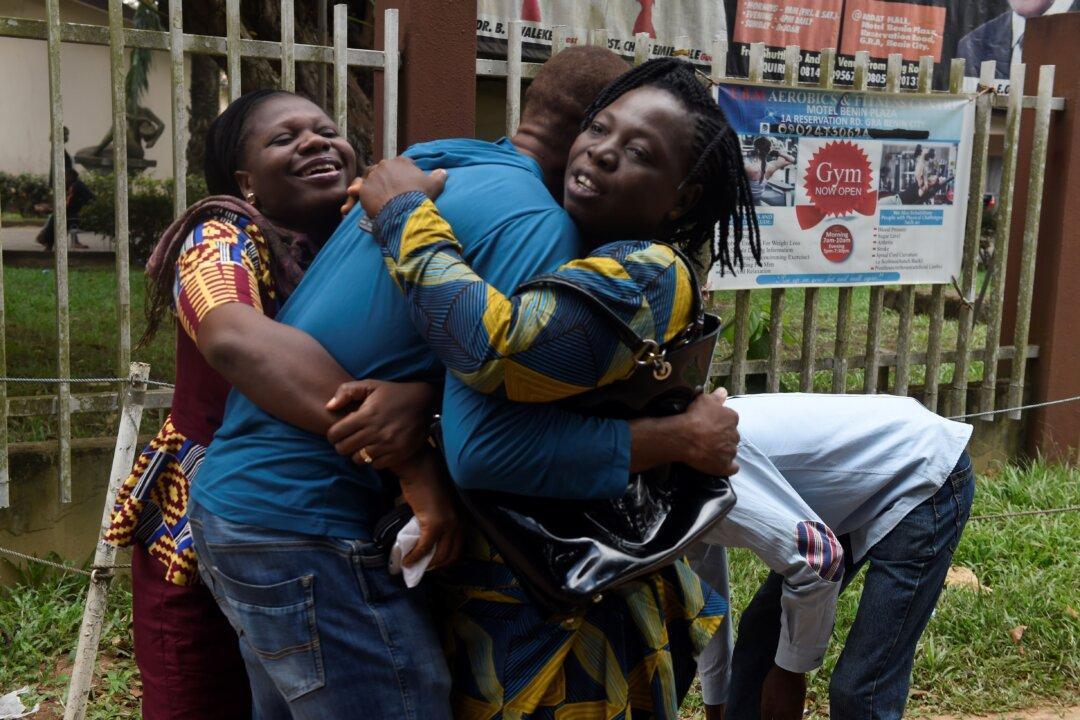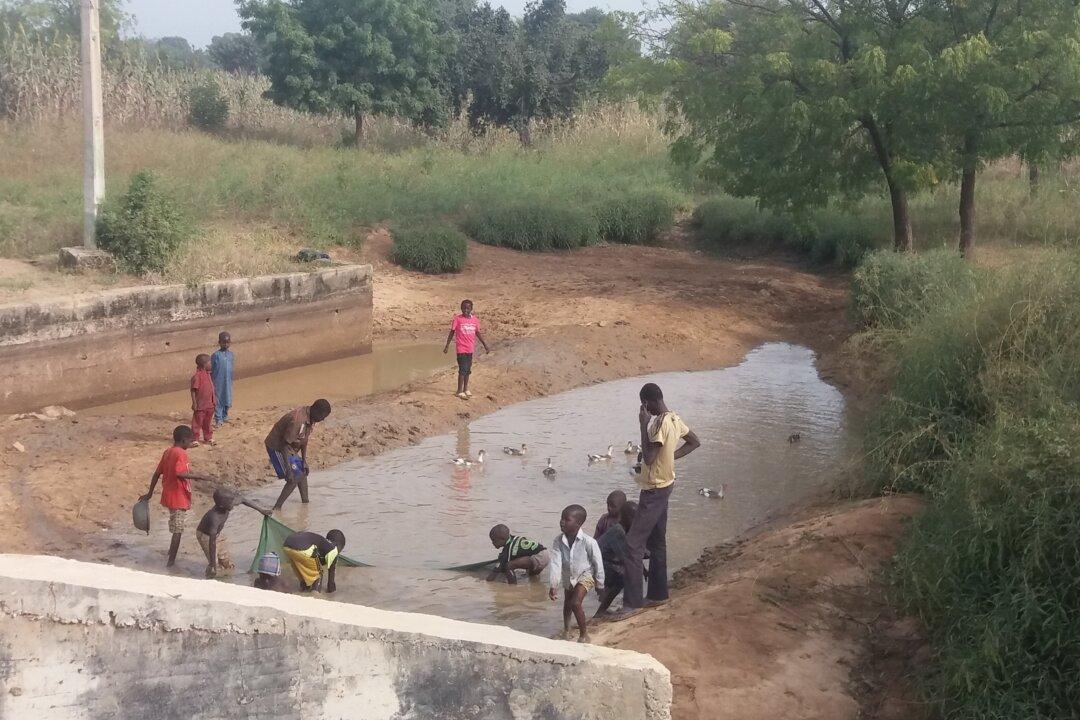LAGOS, Nigeria—Four years ago, President Muhammadu Buhari of Nigeria rode to power on a wave of optimism, becoming the first opposition candidate to defeat an incumbent president in the political history of the country.
Buhari promised to tackle the country’s myriad challenges, most prominent of which were security, corruption, and other developmental deficits.
